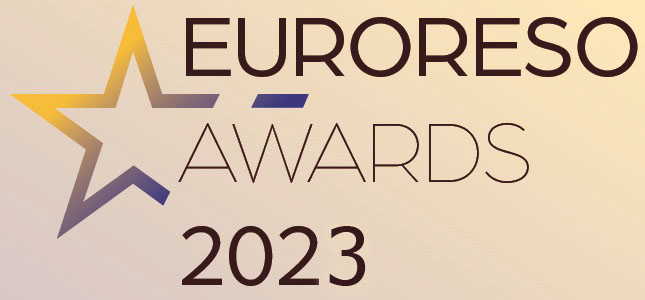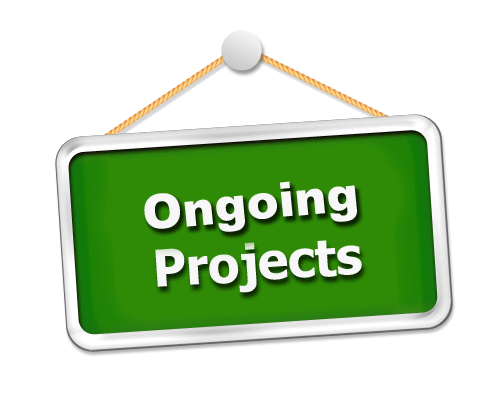SMILE: NETWORK FOR SOCIAL AND MARKET INCLUSION THROUGH LANGUAGE EDUCATION
SUMMARY
The Network for Social and Market Inclusion through Language Education (SMILE) aims to gather partner organizations from the educational, labour and social sectors and explore in them opportunities for accommodation of LWUTLs for increasing competences and skills in order to boost competitiveness, enhance employability and reinforce social inclusion on European level.
In times of economic crisis and rising unemployment in Europe the acquisition of new skills is vital for better realization on the labour market, prequalification or finding a job. SMILE understands the needs of the labour market to increase the language skills competitiveness and thus increase employability in the context of globalization. This can be reached by linking the learning outcomes, enriched by trainings and informal learning, with the growing demand of employers for application of non-conventional skills. SMILE will support the practical implementation of ET 2020 objectives and specific objectives of LLL Programme by implementing in practical terms cooperation between the worlds of education, training and employment.
The project concept is based on identifying sectors and focused target groups from the educational, social and labour markets who can benefit from the accommodation of LWUTLs and disseminating in them the most effective existing methodologies for situational learning of LWUTLs. SMILE will create a collection of good practices providing innovative methods for promotion and learning of LWUTLs in situational contexts and come up with a set of analyses and recommendations for enhancement of the learning and promotion of LWUTLs on practical and political level.
The network will be implemented by 20 organizations which will address those issues in 15 European countries. Through the involvement of the European network EURORESO, impact will be ensured beyond the formal partner representation given that the network is active in 23 European countries.
Specific Objectives:
– To analyse and contribute to the implementation of the European language strategies and policies in the field of promotion of linguistic diversity and LWUTLs.
– To exchange of experience and information on good practices and methodologies for promotion of linguistic diversity and LWUTLs with focus on their application in various sectors.
– To create cooperation opportunities between the fields of language education, training and work and thus enhancing competitiveness and employability
– To promote the importance of languages and revealing the potential of learning LWUTLs for better realisation on the labour market, prequalification and finding a job.
– Strengthening social inclusion of various disadvantaged groups, including migrants, people with disabilities, senior citizens, etc…
Outcomes:
-Collection of good practices that have developed innovative methods for promotion and learning of LWUTLs applicable for the identified sectors.
-National reports analysing opportunities and methodologies offered in the partner countries for learning of LWUTLs, their applicability with various target groups and transferability to different contexts.
-Situational analysis providing information about the needs related to LWUTLs of the identified sectors on European level and solutions for meeting them through non-traditional methodologies applied for situational language learning and promotion.
-Workshops outlining the possibilities offered by the European programmes and the selected good practices with regard to promotion of linguistic diversity and LWUTLs.
-Recommendation papers providing strategies, opportunities and methodologies for promotion of linguistic diversity and LWUTLs on European level.
-National events presenting the network findings to stakeholders on practical and political level.
-Website hosting all project outcomes as well as sections useful for networking activities and opportunities.
-Exchange of experience for motivating people to learn LWUTLs for increasing competences, competitiveness and employment in various sectors and thus improving their position for realization on the labour market.
Website of the project:
PARTNERSHIP
Instituto de Formación y Estudios Sociales – IFES (Spain) – coordinator
KU TU Ltd. (Bulgaria)
Berufsfortbildungswerk des DGB, Competence Center EUROPA (Germany)
EURORESO (Italy)
Soros International House – SIH (Lithuania)
Pressure Line (The Netherlands)
Acrosslimits Limited (Malta)
Znanie Association (Bulgaria)
SYNTHESIS (Cyprus)
Egitim ve Genclik Calismalari Enstitusu (Turkey)
AKLUB (Czech Republic)
DIAN Training and Management Activities (Greece)
Stiftung ECAP (Switzerland)
EUROFORTIS (Latvia)
ECO-CONSULTANTS S.A. (Greece)
BIOCERT (Italy)
Jukka Kallio EU-projects (Finland)
ANKA – Development Agency of Karditsa (Greece)
FLEP – Formação, Língua e Estudos Portugueses Lda (Portugal)
Stroyexpert – SEK Ltd. (Bulgaria)
Project lifetime: January 2014 – December 2016
The project is co-funded by the European Commission within the frame of the Lifelong Learning Programme – Languages (Key Activity 2).


